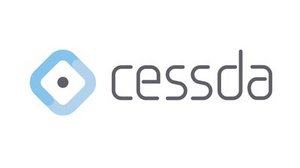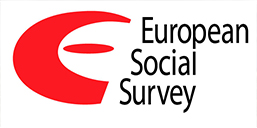Strongly connected - GESIS in European consortia
CESSDA - The Consortium of European Social Science Data Archives

The Consortium of European Social Science Data Archives (CESSDA ERIC) provides comprehensive, integrated and sustainable data services to social science stakeholders. It brings together data archives from across Europe to support research and collaboration at national and international levels. Having grown from a network of European service providers into a legal entity and infrastructure under the European Strategy Forum on Research Infrastructures (ESFRI), CESSDA was granted ERIC (European Research Infrastructure Consortium) status in 2017. CESSDA is funded by the research ministries of each member state or a contracted institution. Its headquarters are located in Bergen, Norway.
Goals and Strategy of CESSDA
CESSDA's vision is to be a hub for data in the social sciences and to provide a reliable platform with tools and services for researchers to curate, publish and reuse research data. CESSDA has agreed to the principles of the European Open Science Cloud Declaration and is committed to actively supporting the implementation of FAIR data. Four CESSDA working groups, together with the main office, are supporting progress and developments:
- Deposit or retrieve data in an uncomplicated way - this is one of the goals of CESSDA. The "Tools" working group ensures that users always find a flawless technical infrastructure that is easy to use.
- CESSDA supports the continuous training of service providers and the user community. The "Training" working group relies on the train-the-trainer principle, and the areas covered include research data management, archiving, and CESSDA tools.
- CESSDA strengthens trust in social science research through quality assurance and reusability of data. The "Trust" Working Group supports CESSDA service providers on the path to becoming a Trusted Repository.
- CESSDA is growing - and developing a Pan-European collaboration that goes beyond the current membership. The "Widening and Outreach" working group is laying the groundwork for this by, for example, creating a common meeting platform for CESSDA partners, their ministerial and service representatives, and CESSDA headquarters through workshops. In addition, the working group provides information on CESSDA products, tools and support opportunities and promotes the visibility of CESSDA in third countries.
Der European Social Survey (ESS)

The European Social Survey (ESS) is an academically driven cross-national survey that has been conducted across Europe since its establishment in 2001. Every two years, face-to-face interviews are conducted with newly selected, cross-sectional samples. The survey measures the attitudes, beliefs and behavior patterns of diverse populations in more than thirty nations.
In 2005 the ESS was the winner of the Descartes Prize for Research & Science Communication.The ESS was awarded ERIC status by the European Commission in 2013 and comprises now 21 member countries and one observer country. The Director of the ESS ERIC is Rory Fitzgerald and the ESS ERIC headquarters are at City, University of London.
Aims
The main aims of the ESS are:
- to chart stability and change in social structure, conditions and attitudes in Europe and to interpret how Europe’s social, political and moral fabric is changing;
- to achieve and spread higher standards of rigour in cross-national research in the social sciences, including for example, questionnaire design and pre-testing, sampling, data collection, reduction of bias and the reliability of questions;
- to introduce soundly-based indicators of national progress, based on citizens’ perceptions and judgements of key aspects of their societies;
- to undertake and facilitate the training of European social researchers in comparative quantitative measurement and analysis;
- to improve the visibility and outreach of data on social change among academics, policy makers and the wider public.
Services
The ESS data is available free of charge for non-commercial use and can be downloaded from the ESS website after a short registration.
The Role of GESIS
GESIS as member of the Core Scientific Team within ESS fulfils major tasks in questionnaire translation and in fieldwork planning and monitoring. In order to achieve 'optimal comparability' in the operationalisation of the ESS, the Core Scientific Team produces a detailed project specification, which is revised in light of each successive round. National teams ensure that fieldwork is conducted - and comprehensively documented – according to the same standards cross-nationally. This 'principle of equality or equivalence' applies to sample selection, translation of the questionnaire, and to all methods and processes associated with data collection and processing.
The national teams of the countries participating to ESS are supported and evaluated in order to ensure the highest possible precision and comparability of the collected data.
The ESS team at GESIS organizes the meetings of the National Coordinators’ Forum twice a year. Dr. Angelika Scheuer serves as Deputy Director Scientific and supports the Scientific Advisory Board of the ESS ERIC.
Members
- City, University of London (UK)
- GESIS - Leibniz Institute for the Social Sciences (Germany)
- KU Leuven (University of Leuven) (Belgium)
- NSD - Norwegian Centre for Research Data (Norway)
- SCP - The Netherlands Institute for Social Research (Netherlands)
- Universitat Pompeu Fabra (Spain)
- University of Essex (UK)
- University of Ljubljana (Slovenia)
